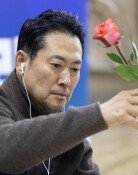[Opinion] Let`s Allow Voters to Choose a Blank in the Vote
[Opinion] Let`s Allow Voters to Choose a Blank in the Vote
Posted June. 12, 2002 00:05,
Tomorrow morning, voters may have to go to the polls to choose their representatives. But may of them feel burdened about the election. Over 60 percent of voters have yet to decide on whom they will have to give a vote. Over a month ago, similar number of people told that they had not decided yet. This is a very different phenomenon from the past when more number of voters chose their favorites with a voting day coming nearer. At this local election, the turnout rate will be very low without a doubt.
Many countries located in Western Europe or American Continent called as advanced nations in terms of local autonomy also show a generally low turnout rate. Voters are well aware of the fact that a voting result cannnot change many things in local autonomy. They know that whoever will become a local governor, their life would not be much affected. But our problem is coming from a different direction. First of all, all the hype about the World Cup Games are preventing voters from going to the polls. But, another fact that floating votes stood at 60 percent even before the World Cup Games started shows well that it is not just the World Cup. Basically, voters cannot find out their favorite candidates. They do not have any candidates to choose on their mind. It would be natural for voters not to have interest in the election, considering that candidates are only comprised of figures related with the central government. Besides, a new figure from the old party would not bring on much difference to their communities. Above all, voters know that the local election has been serving as a preliminary test to the presidential election.
When people have a strong desire for a reform and change, politicians do not provide them any good solutions just mud-slining each other. Surely, nobody wants to stand up for any candidates. In that respect, public apathy towards the election is a kind of covert expression of voters to resist the existing politics. Under the current situation, excessive encouraging the public to vote might become a forceful activity. Not to vote can be a way of expressing a voter`s opinion at an election.
Some nations that realized the problem earlier leave a blank on a voting paper so that voters without any favorites can choose the blank. It is different from the right to give up on a vote. The blank-voting system stipulates that a reelection should be held in case one third of voters choose a blank in order to achieve more mature and innovative political culture. For example, Canada is conducting the system. It would not be appropriate to just force voters to participate in a vote. Rather, politicians should make a realistic and practical effort to attract public interest in the politics by introducing the blank-voting system to give voters a chance to express their opinions that way. That will make voters` mind lighter. If an election is a way for voters to express their wills, the blank-voting system will be able to contribute to raising the freedom of voters.






![[김순덕의 도발] ‘李부터 연임’ 개헌, 이 대통령은 가능성을 말했다](https://dimg.donga.com/c/138/175/90/1/wps/NEWS/IMAGE/2026/01/16/133172656.1.jpg)
